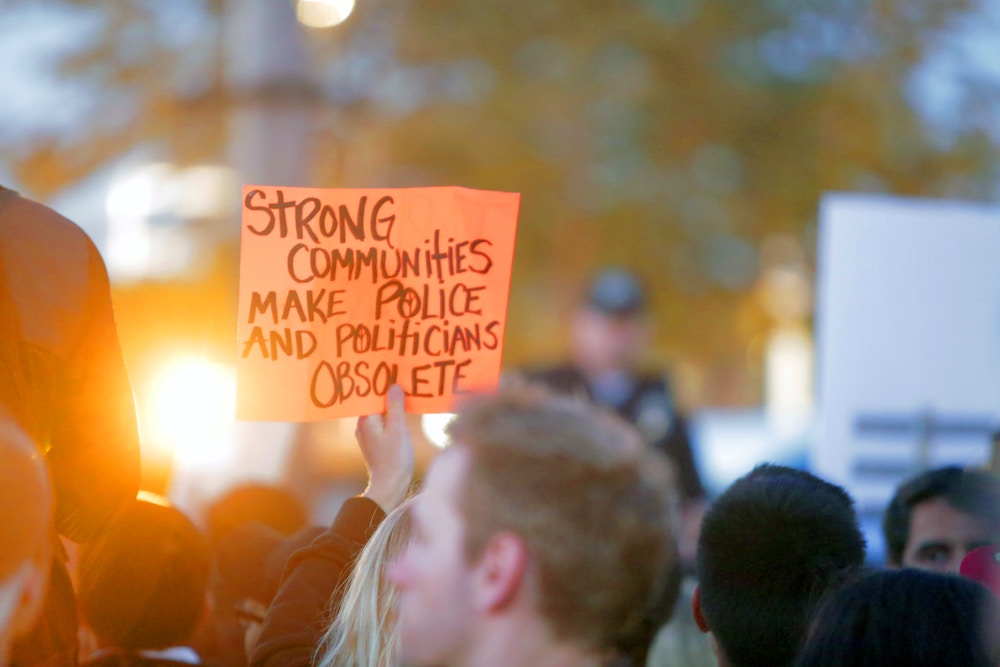
In brief
In this blog, Relationships Project founder, Shift board member and community worker David Robinson shows what a relational approach looks like, and how it might work, across the sectors.

What is a relationship-centred council or relationship-centred economy, a relationship-centred business, council, city, neighbourhood? How would they work and what would be different?
The good news is that we don’t have to imagine the answers. As William Gibson once wrote, “the future is already here, it’s just not very evenly distributed.”
Relationship-centred democracy
The context would be set by a politics that brings us together rather than one that drives us apart.
A relationship-centred democracy would recognise the primacy of relationships between people as the central organising principle in a successful society rather than between people and the state or people and the market. It would enable and support flourishing relationships in every context and it would model the relational approach in its own behaviour.
Big and difficult choices would be made by forming relationships across the divides. This is the open arms rather than the clenched fist approach to politics. To appreciate why it is so particularly timely, contrast the consensus achieved by the Irish Citizens Assembly in its work on abortion with the fierce division whipped up by the Westminster gladiators on all sides of the Brexit debate.
Because politics is as much about tone as it is about substance, leaders would talk about kindness and empathy at the highest levels just as New Zealand PM Jacinda Aherne did at the UN and again at the World Economic Forum.
And they would particularly sustain the tone in the darkest moments, because it is when relationships are tested by such atrocities as the Christchurch shooting that they are most important. “We represent diversity, kindness, compassion, a home for those who share our values, refuge for those who need it.”
Politicians in the local relationship-centred democracy would have a similar approach. Their councils would adopt the characteristics of what the New Local Government Network calls the ‘Community Paradigm’ – a democratic relationship between the government and citizens based on participatory decision making, co-production and co-delivery, devolution and community collaboration.
Power would be devolved not only to cities and regions, that’s just a beginning, but to the smallest viable unit of delivery.
Here conditions and protocols would prioritise staff discretion and autonomy, emphasising the consistency and stability of the client/provider relationships, and, as Julia Unwin has been arguing, making time for kindness.
Often, indeed, in this relationship-centred future, services for public good won’t be services as we know them today but the kind of nexus of relationships envisaged by Hilary Cottam meeting need together.
Take, for example, the Frome Model of Enhanced Primary Care. It builds on and develops existing relationships to improve health outcomes. Volunteer “Community Connectors”, Talking Cafes and Social Prescribing in this Somerset town have, according to the British Journal of General Practice achieved “highly significant reductions in unplanned admissions to hospital.” From April 2013 to December 2017 admissions fell by 14% in Frome whilst increasing by 28.5% across the rest of the county.
The Buurtzorg approach to health and social care in the Netherlands similarly empowers carers to develop a relationship-centred approach. Client satisfaction scores here are 30% above the national average (2008 – 2013) and staff sickness is half the industry standard. These principles have been adopted with similar success by Scottish social care provider Cornerstone. 97% of its service users are positive about the difference made with this approach.
More local authorities would look like Wigan – the Local Government Chronicle Council of the Year. Here people in care have been transitioned out of costly, impersonal state-run institutions and into more intimate, community-connected settings with 71% more now receiving care in their own home. A more collaborative ‘huddle’ approach to children’s services in the city – similarly drawing on closer community partnerships – has resulted in a 13% reduction in children needing to be looked after. And despite, or perhaps because of, these spectacular improvements in service the authority has saved £140m since 2011.
Preston has been prioritising relationships in the local economy with comparable success. In 2012/13 5% of the money spent by Preston’s six ‘anchor institutions’ was spent in Preston, and 39% in Lancashire. By 2017, 19% was spent in Preston and 81% in Lancashire. This is the energising force behind generating ‘Community Wealth’ driving up social capital, helping to increase the chance of a good livelihood in Preston and increasing the sense of real community pride.

Relationship-centred community
All these examples demonstrate both the national and the local state as an enabling partner of a relationship-centred community. The work of the Big Lunch and The Great Get Together shows how simply bringing people together for one afternoon can have an astonishing range of lasting benefits ….
%
Your Title of 2018 Big Lunchers felt it brought generations together, 72% that it bridges ethnic divides and 77% that they were closer to their neighbours
%
of 2018 Big Lunchers and 82% who attended a Get Together met new people they would like to stay in touch with
%
And, crucially, all this isn't just about one afternoon...77% of Big Lunchers feel closer to their neighbour and half now do things together that they had never done before
Relationship-centred business
The relationship-centred business is prefigured by the example of businesses like COOK. Here the focus on relationships runs through the entire brand. It uses staff self-reflection instead of appraisals and runs a “dream academy” offering staff free coaching on other ambitions. COOK was voted 14th in Times 100 best companies to work for in 2019 and profits are also pretty good!
Timpson also takes a relational approach and, like COOK, particularly works on the employment of people who have been in prison. Infact 10% of its workforce are ex-offenders. Of these just 3% have reoffended. With the national average standing at over 60%, this achievement represents a saving to the public purse in excess of £80m. Once again, this is not only a good business but also a successful one.
John Lewis is often cited as the poster child of the relational approach in retail and with good reason. As this Guardian piece demonstrates, it is an approach that fosters loyalty, kindness, trust and energy. And it has enabled the business to outperform the FTSE by 10%, create jobs faster, achieve higher customer satisfaction and keep staff for twice as long as the industry average.
Relationship-centred economy
A national relationship-centred economy would similarly thrive on collaboration and respect. Community businesses, rooted for generations in strong relationships, would be actively supported. Other alternatives to the market-based paradigm like housing associations, co-ops and community assets would be similarly encouraged.
Workers would be represented on the boards of every enterprise, large and small, public and private. And if all that sounds frighteningly radical, remember the aforementioned John Lewis: employee owned since 1929. In this business there are no “workers”; everyone is a partner. Five partners are elected by their peers to the board and the company constitution sets out its ultimate purpose as “the happiness of all its members through their worthwhile and satisfying employment in a successful business.” Imagine a version of that mantra set out on page one of the Treasury’s Green book – “our ultimate purpose is the happiness of all citizens through their worthwhile and satisfying employment in a successful economy.” That’s what a relational economy would look like in a relationship-centred democracy.
My point here is a simple one: Forming and sustaining relationships with one another is what it is to be human. Making relationships the central operating principle on which we build a favourable and equitable economy, effective government, flourishing businesses, successful services and happy, healthy and thriving communities is not a twinkle on the third horizon. We can do this, we are doing it now. We need to do it more.
